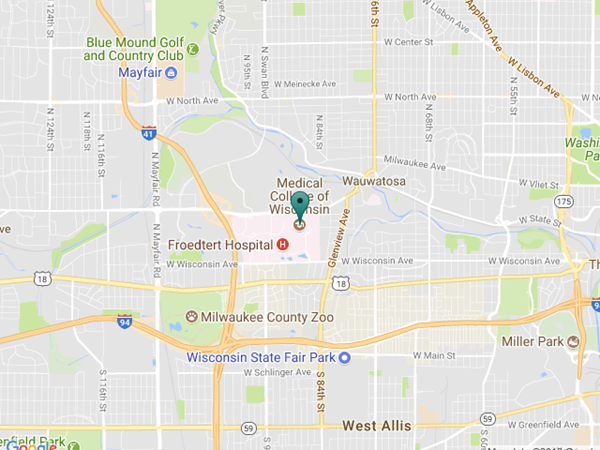Medical College of Wisconsin Cardiac Amyloid Program

About Cardiac Amyloidosis
Meet Our Team

Naveen K. Addagatla, MBBS
Assistant Professor

Michael P. Collins, MD
Professor

Anita D'Souza, MD
Associate Professor

Ashraf El-Meanawy, MD, MS, PhD, FASN
Outpatient Dialysis Medical Director, Professor

Juan Jose Figueroa, MD
Assistant Professor

David Lewandowski, MD
Assistant Professor

Eugenia Raichlin, MD
Professor

Jason C. Rubenstein, MD, FACC, FHRS
Associate Professor

Kia Saeian, MD, MSc EPI
Professor

About the Cardiac Amyloidosis Clinic
At the Medical College of Wisconsin our physicians have a level of experience and training in Amyloidosis not commonly found in Wisconsin. We provide exemplary care to our patients with all types of amyloidosis. We have expertise in nuclear scintigraphy (TC 99 pyp), cardiac ultrasound (including 3D and strain imaging) and cardiac MRI which allows us to utilize the most advanced technology when it comes to diagnosis and management of this disease process. As amyloidosis can affect several different body systems, we have developed a team of Hematologists, Nephrologists, Cardiologists, Pulmonologists, Neurologists, and Pathologists to offer the best and most comprehensive care available.
We are committed to developing a plan that is right for your patients. We also have access to several clinical trials which may offer additional options for therapy and new insights into current therapy as well as markers of prognosis and disease severity.
Comprehensive Treatment Options
There are several types of amyloidosis; the two most commonly affecting the heart are:
- AL Amyloidosis: amyloid fibrils are composed of immunoglobulin light chain proteins produced in the bone marrow and most commonly affect the heart, kidneys, skin, nerves, and liver.
- ATTR Amyloidosis: can be based on a genetic mutation in the transthyretin protein (variant or ATTRv) or acquired (wild type or ATTRwt).
- Hereditary (variant, ATTRv) transthyretin amyloidosis is an autosomal dominant, multi-organ, progressive, life-threatening disease caused by mutations in the gene encoding TTR production by the liver. The most common ATTRv mutation in the US is V122I. It affects 3-4% of African American population with variable penetrance.
- Wild-type ATTR (ATTRwt) amyloidosis is a slowly progressive disease, typically affecting patients over age 65. The disease typically is manifested as heart failure with preserved ejection fraction, atrial fibrillation, and neuropathy.
There is currently no cure for amyloidosis, but treatments are available which manage symptoms and limit the production of the amyloid protein with the goal to ultimately slow or stop the disease process and improve morbidity and mortality.
Contact Us
To transfer a patient or consult with a specialist (for physicians and staff only):
Call the Access Center at (414) 805-4700 or (877) 804-4700.
Nurses are available 24 hours a day, seven days a week.
Patient Information
Please call (414) 777-7700 to make an appointment in the Cardiovascular Medicine clinic.




